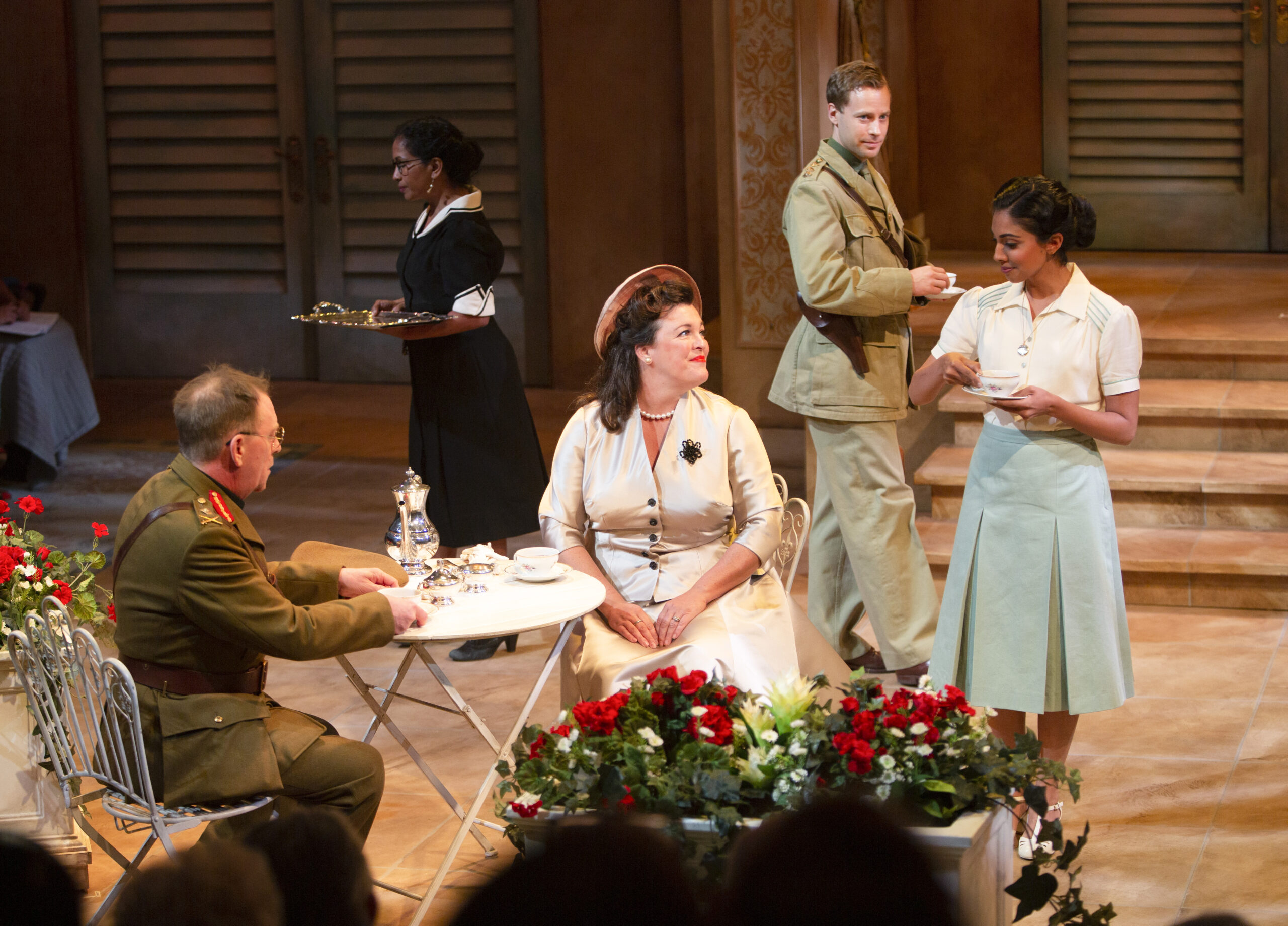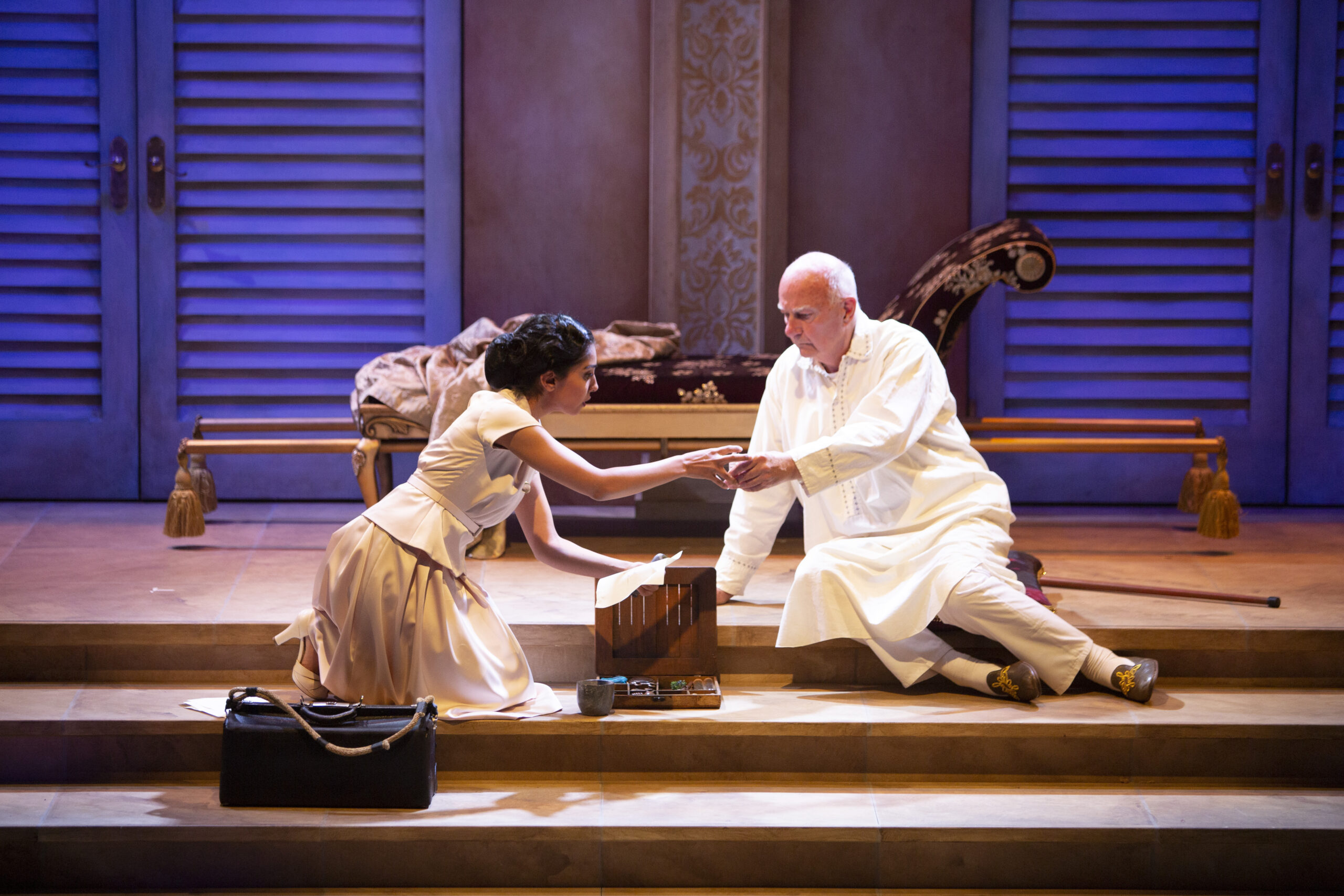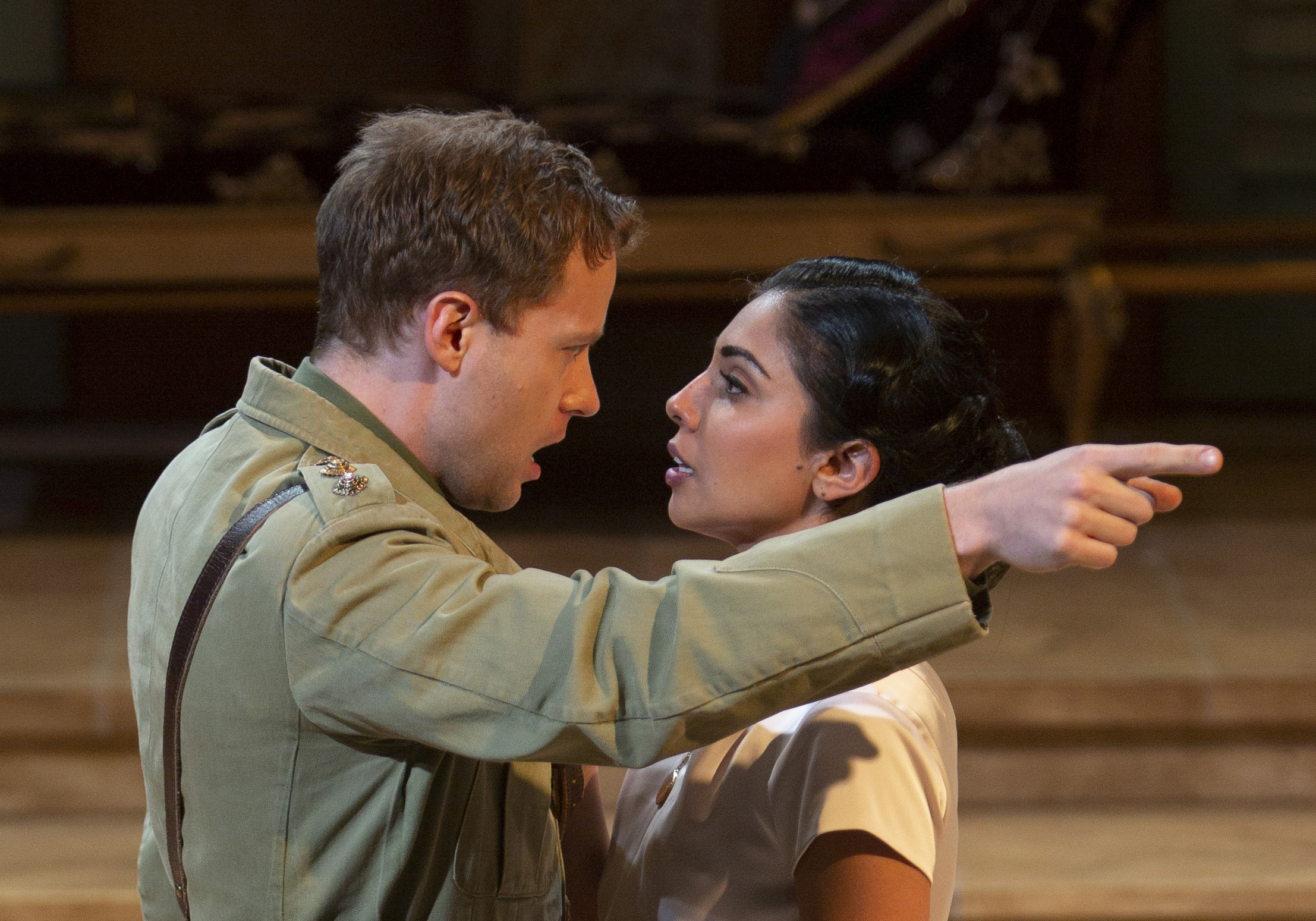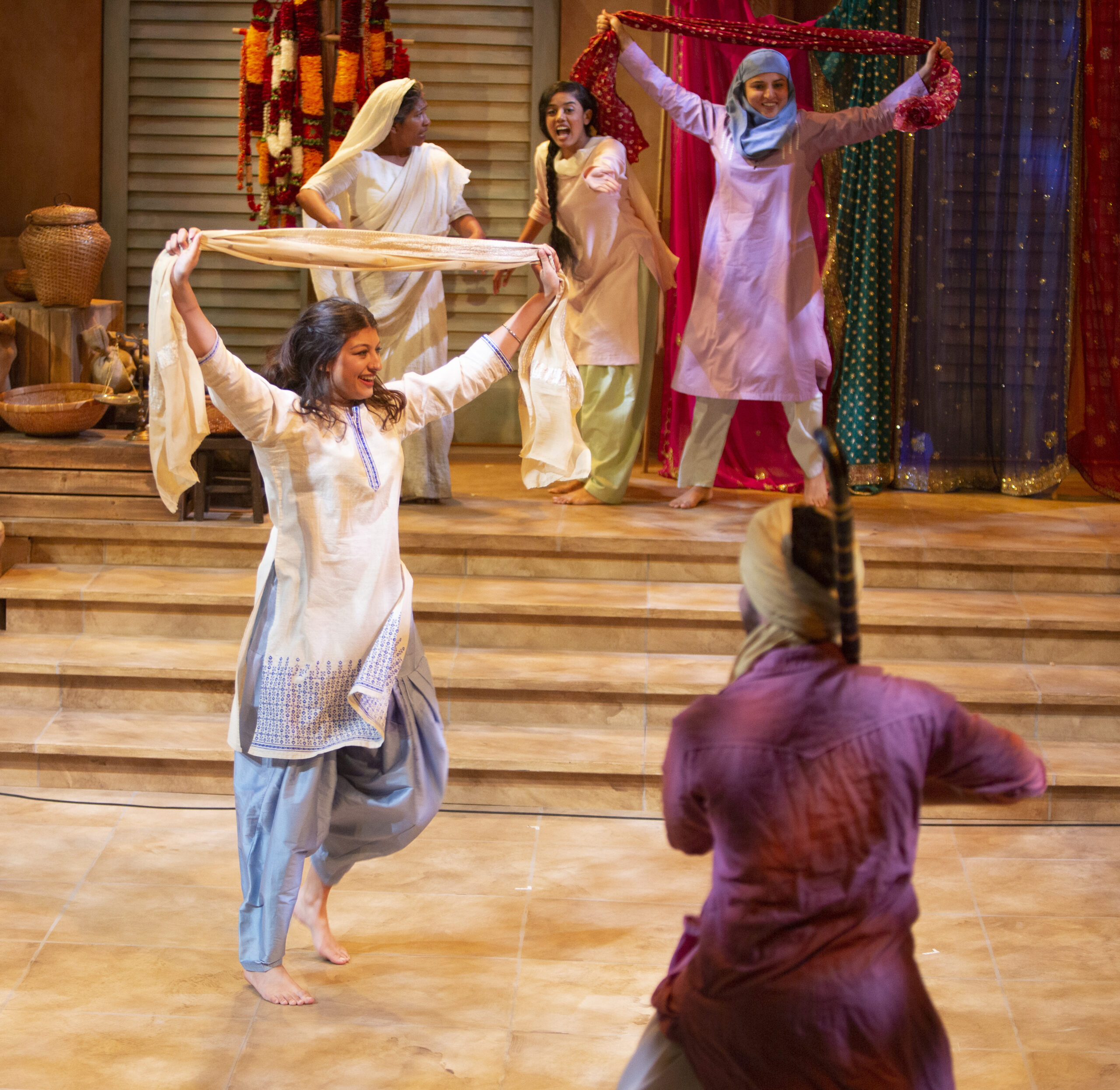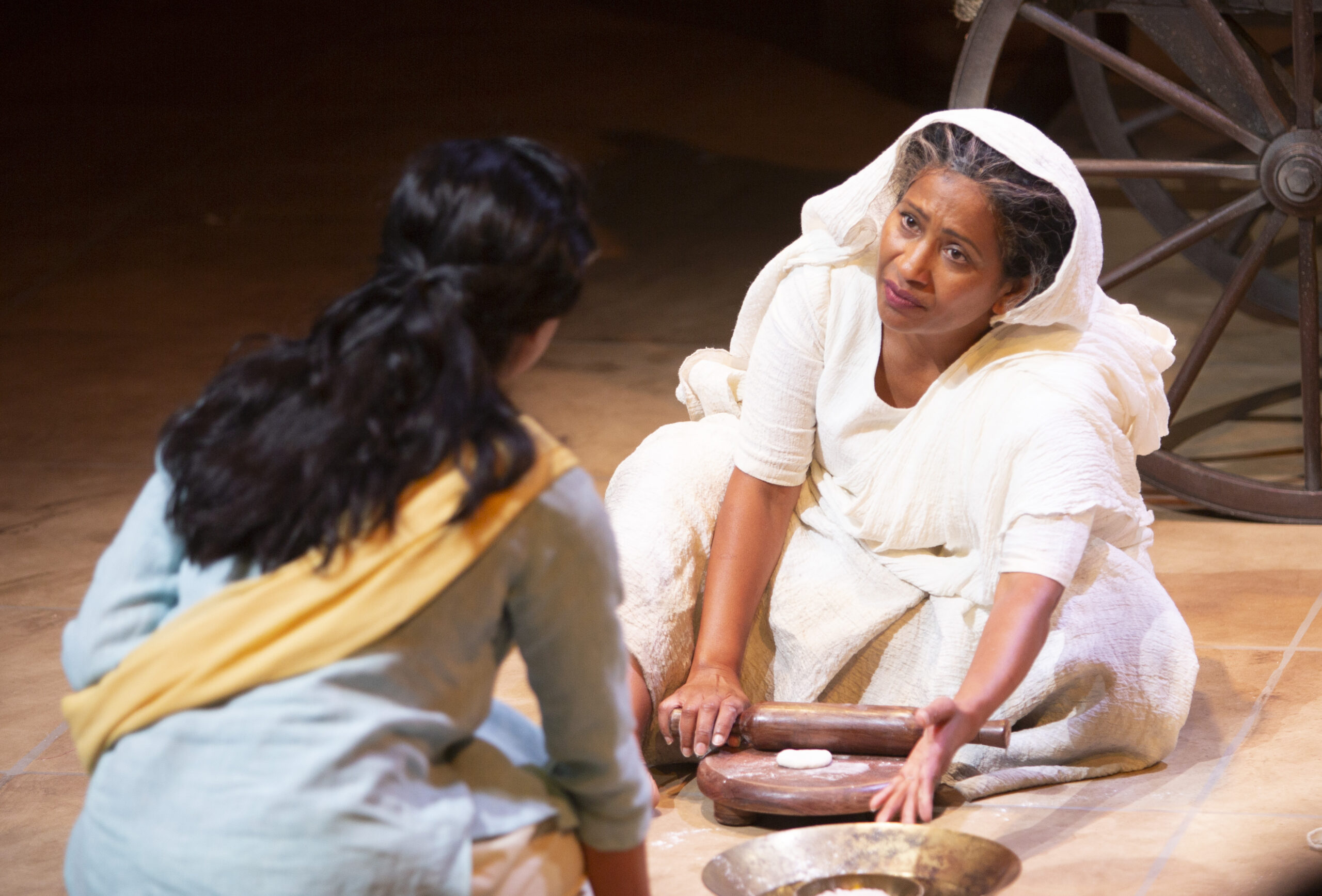Is something really a Shakespeare play if it doesn’t include the threat of banishment? What marks All’s Well That Ends Well as one of the rarely performed “problem plays” is how this threat lingers: the play, now being performed on Bard on the Beach’s smaller stage, doesn’t end with either a parade of tragic deaths or a joyful wedding.
A wedding does form the crux of the plot. Helena (Sarena Parmar), a doctor’s daughter of Hindu descent, through a deal with the local monarch earns the hand of Bertram (Edmund Stapleton), her secret love and close companion since youth. But rather than embrace matrimony, Bertram banishes himself to war, insults Helena, and swears off ever seeing the union as legitimate. Helena, an indomitable protagonist (George Bernard Shaw singled her out among all of Shakespeare’s heroines), is left to work out a problem of desire: what to do when an emotional guiding star turns out to be worthy of contempt?
Bard’s production digs deeper into that problem by setting the action just before and after the partition of British India into an independent India and Pakistan. Often, directors struggle with how to justify the play’s wild tonal shifts, but here (the co-directors are Rohit Chokhani and Johnna Wright) the tensions are crystal clear: Bertram, a colonizer, isn’t not-in-love, but is someone whose entire social standing means he can’t (or won’t) see Helena as a possible partner.
This cultural tension opens up the play, but it also reveals the distance the festival is not yet willing to go. Most of the non-white actors have servile, non-speaking parts. Some scenes are partly in Hindi, and yet there’s a sense that the concept is the result of compromise—the limits of progressivism would have it that actors from “richly different backgrounds” (per one press release) are added to the interludes and background of a play, while the centre of it remains loyal to an imagined British tradition. It’s completely neutral to say that the largest impact this setting decision has on All’s Well is as a source for music, costumes, and dance, including a show-stopping wedding sequence.
Parmar, whose script for The Orchard (After Chekhov) was produced to mixed reviews by the Arts Club earlier this year, has a difficult task—she has to hold steady while being the noblest person in the story. Though her early monologues are delivered with a breathless lack of inflection, by play’s end there’s an accounting for a question that’s been the subject of stories at least as far back as Ruth Prawer Jhabvala’s script for Shakespeare Wallah: How can one love another culture, when that very culture would most love to replace one’s own?
Dive into more from the Arts.

